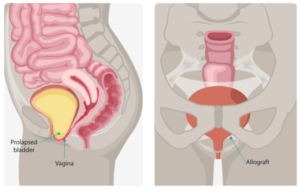Vitamin E health advantages, benefits and its nutritional-sources

Vitamin e health benefits and nutritional sources
Vitamin E is a potent antioxidant that can improve your overall health and wellbeing of the body. Vitamin E can also protect cells from oxidative stress and help promote healthy skin and hair. Where can you get this vital nutrient? There’s a wealth of delicious sources ranging from leafy greens to seeds and nuts. In this article we’ll go over the benefits of vitamin E as well as provide some simple ways for to incorporate it into your daily diet. Get ready for a healthier you with Wellhealthorganic.com:vitamin-e-health-benefits-and-nutritional-sources!
What is Vitamin E?
Vitamin E is an essential fat-soluble nutrient that is vital for good health. It is an antioxidant that protects cells from damage due to free radicals which could cause chronic illnesses like cancer and heart disease. Additionally, it helps to support immune system function while aiding food metabolization. Vitamin E plays an important role in maintaining overall well-being too!
Sources of Vitamin E
Hemp seeds, olive oil, almonds, avocados and green leafy veggies are the most potent sources of this essential nutritional element. Additionally, multivitamins and some diet supplements are rich in it, too.
Wellhealthorganic.com:vitamin-e-health-benefits-and-nutritional-sources are:
Vitamin E provides numerous health advantages.
Vitamin E can be described as an antioxidant that offers numerous health benefits. It not only protects the body from damage caused by UV rays and environmental elements however, it also helps to support cell growth and function while keeping cholesterol levels under control. Here are some benefits of vitamin E:
decreases Heart Disease Risk: Studies have demonstrated that vitamin E helps reduce the risk of heart disease by preventing LDL cholesterol oxidation, which could cause plaque buildup within arteries.
Reduces wrinkles and age-related cognitive loss: Vitamin E helps to protect skin from UV radiation in addition to other environmental factors which could cause wrinkles or other signs of ageing. In addition, it improves brain function and could stop the decline of cognitive function due to age.
Lowers the Risk of Cancer Research has shown that Vitamin E may have anti-cancer effects, and some research suggests it could potentially help reduce your risk from certain types of cancers, like prostate cancer.
Vitamin E Strengthens the Immunity: Vitamin E helps to boost the immune system, aiding in the prevention of illness and infections.
How Much Vitamin E Should I Get Daily?
According to the National Institutes of Health, you need a daily intake of up to 15 milligrams (mg). Most multivitamins provide at least 8 mg, so make sure your supplement includes this essential vitamin.
Where Can I Find Vitamin E Sources?
Vitamin E is available in a wide variety of sources. Here are a few of the most effective:
Nuts and seeds Almonds, hazelnuts, pistachios, and sunflower seeds are great source of vitamin E. In addition, these nuts and seeds are rich in omega-3 fatty acids, which reduce inflammation in the body as being able to reduce the risk of chronic illnesses.
Green Leafy Vegetables Leafy green veggies like kale, spinach, Swiss chard, collard greens, cabbage, Brussels sprouts, and cauliflower are an excellent source of Vitamin E. In addition, these green vegetables also provide essential nutrients, such as folate and fiber.
Olive Oil: Organic cold-pressed olive oil is a fantastic food source for vitamin E. One tablespoon is packed with approximately 10 mg of vitamin E, as well as healthy fats, which can in preventing heart disease.
Avocado: This superfruit is loaded with vitamin E and healthy fats, fiber, and potassium. This makes it an ideal ingredient in smoothies, salads, or sandwiches.







